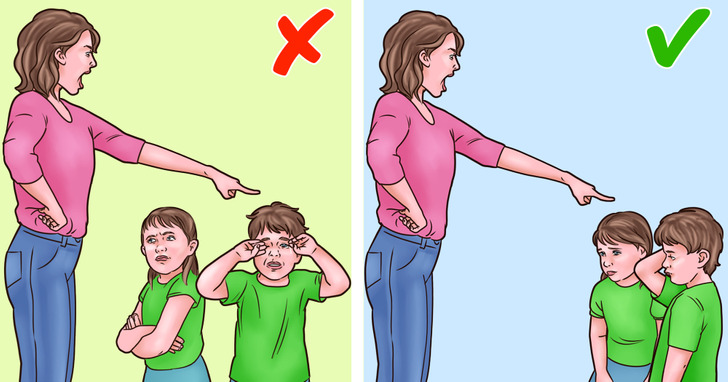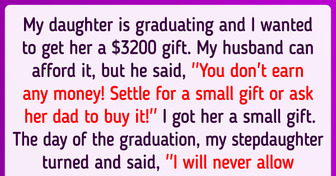20+ People Who Dreamed of Having a Delicious Meal, but the Chef’s Creativity Spoiled Their Appetite

We all want our children to grow up feeling confident and good about themselves, so we may avoid disciplining them in fear of making them insecure. But correcting bad behavior is important, so it’s good to find a middle ground, and one useful method to achieve this is called “soft criticism.”
We at Bright Side want to help you and your kids feel happy and confident. So read on for some science-backed suggestions of ways to admonish your kids without having a negative effect on their self-esteem.
You can calmly begin the conversation with something like, “I know you didn’t mean to...” This shows your child that you know they have good intentions, despite their mistake. Then you can add a “but” and explain the impact of their behavior. Focusing on how their actions impact others reminds them that they aren’t a bad person, but it can encourage them to think more carefully about the consequences of their behavior in the future.
It never helps anyone to dwell on the past — kids can’t undo what they have done, so continually reminding them of it can make them feel bad about themselves. Instead, you can help them come up with a plan for how they could make things right. Asking them questions, like “What can you do to help them feel better?” can help them get used to thinking about how to rectify their mistakes.
Next, you can patiently guide your child through solutions to their problems. By offering different perspectives, you are helping them to expand their thinking. This is really helpful for dealing with situations that are recurring problems for your children. Then, when their solutions work, you can praise them — it’s very empowering for them to know that they’ve successfully solved a problem!
Saying things, like “You’re a naughty girl,” or “He’s the lazy one,” can change the way your child sees themselves, and a child who thinks they are bad is more likely to misbehave. Instead, make sure that you separate their behavior from who they are as a person. Remind them that they can be a good kid who made a bad choice.
It’s really important to give your child your attention and show that you care. Listen to them as they explain what happened. This can also be a good way to notice patterns — if they always act out when they are jealous, this is a great opportunity to discuss their feelings and coping mechanisms.

Make the focus of your discipline about learning, not punishment. Give them a consequence for their actions and explain to them that it’s so they can learn not to do that again. Reassure them there will be chances for them to try and do better in the future.
Also, when it’s difficult to determine the culprit, it’s necessary to punish everyone involved, as singling out one child can make them feel like a victim.
Research shows that shouting makes children feel scared and insecure, which can lead to aggressive behavior. And insulting a child can have long-term effects, including low self-esteem, anxiety, and aggression. On the other hand, calmness is reassuring, so your child feels loved and accepted, even if they’ve behaved badly.
Try to save any discipline for the home setting. Scolding your kid in public can cause them to feel embarrassed, which can lead to social awkwardness when they are older, as well as holding resentment toward their parents. This is the last thing that any parent wants!
As a parent, it’s important to let your children know that it’s possible to please you. You can recognize the effort they’ve put in, as well as their progress. It’s a special gift to give your child when you recognize how they are growing or who they’re “becoming,” as this sends them the message that no matter how badly they mess up, you’ll still believe in them.
Are there any more tips you would add to this list? What is your technique for admonishing your kids? Share your advice and thoughts in the comments.











